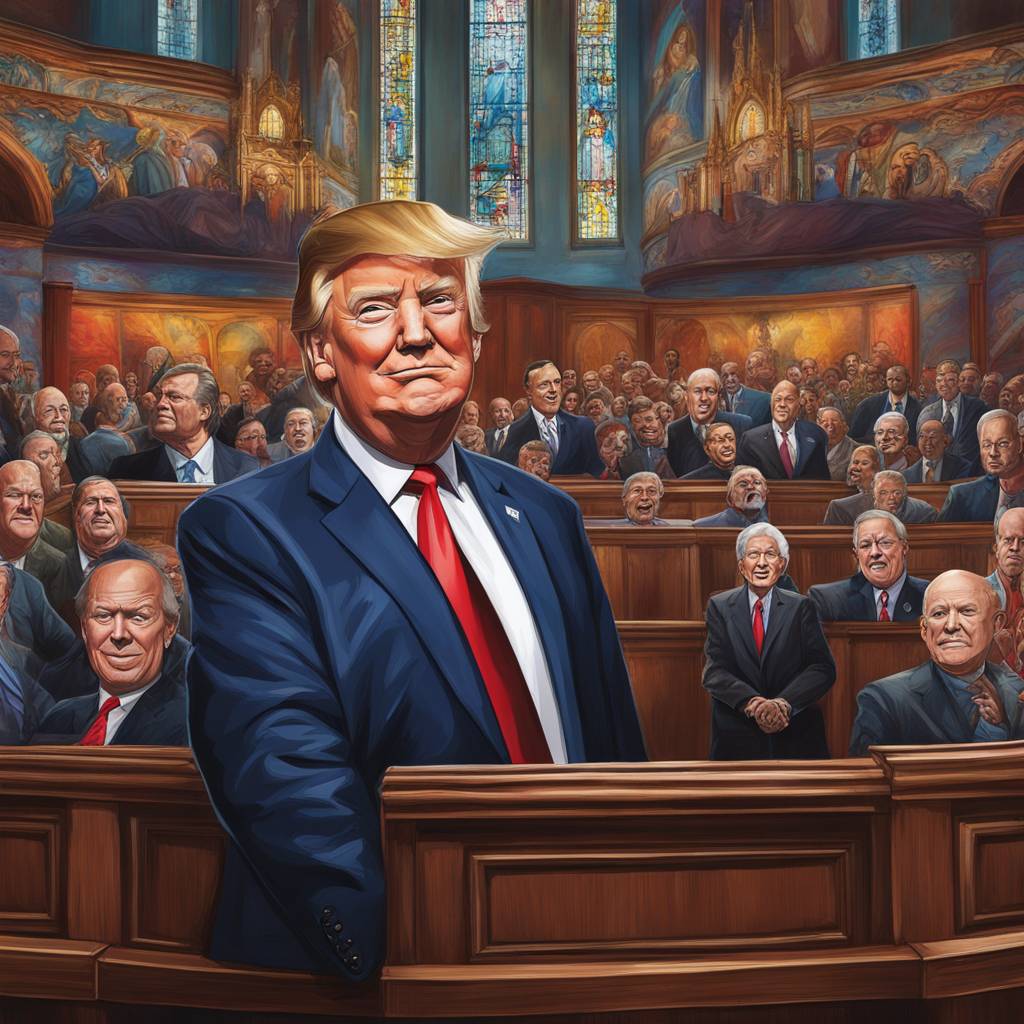In a recent interview on MSNBC’s Morning Joe, preacher Jim Wallis expressed his concerns about former President Donald Trump’s influence on the church. Wallis, the author of “The False White Gospel,” spoke about Trump’s attempts to use religion in his rallies and comments during his presidential campaign. He described Trump as a sacrilegious figure who engages in idolatry, and warned against the dangers of white Christian nationalism in the church. Wallis, who previously worked with former President Barack Obama’s administration, highlighted the need for pastors to revisit the true teachings of the church and to resist the right-wing political takeover that he believes is happening.
Wallis emphasized the need for pastors to recognize and reject the political takeover of the church by right-wing ideologies. He expressed concern that some pastors have been complicit in this takeover, allowing themselves to be influenced by Trump’s manipulation of religious rhetoric. Wallis urged pastors to reclaim the true story of the church and to resist the false worship of white Christian nationalism that he sees as pervasive in the current political climate. He called on pastors to reject Trump’s sacrilegious behavior and instead focus on the core teachings of Christianity that promote love, compassion, and justice.
The issue of Trump’s influence on the church has sparked a debate among religious leaders and followers. Some believe that Trump’s use of religion is genuine and aligned with Christian values, while others, like Wallis, see it as a dangerous distortion of faith for political gain. The divide highlights the complexity of political and religious intersections in America, and raises questions about the role of the church in shaping social and political discourse. As the debate continues, it remains to be seen how pastors and religious communities will navigate the challenges posed by Trump’s influence on the church and how they will work to uphold the true teachings of Christianity amid political divisions.
The connection between religion and politics has long been a contentious issue, and Trump’s presidency brought this relationship into sharp focus. His use of religious rhetoric and appeals to Christian voters were central to his political strategy, and his alliance with conservative religious leaders solidified his support among certain segments of the population. However, critics like Wallis argue that Trump’s actions were antithetical to the true teachings of Christianity and have caused divisions within the church. As the debate over Trump’s influence on the church continues, it raises important questions about the intersection of faith and politics, and the responsibility of religious leaders to uphold ethical and moral standards in the face of political pressures.
The role of pastors and religious leaders in shaping the church’s response to Trump’s influence is crucial as they are tasked with guiding their congregations through these challenging times. The call to resist the political takeover of the church and to uphold the true teachings of Christianity requires courage and conviction, as it may involve challenging powerful forces and ideologies. The debate around Trump’s influence on the church underscores the importance of maintaining a critical and ethical stance in the face of political manipulations, and highlights the role of faith in navigating complex social and political issues. As pastors and religious communities continue to grapple with these challenges, the need to prioritize compassion, justice, and unity in the face of division becomes increasingly urgent.


